Drink for the planet! – These 10 German beverages help to make the world a better place

The beverage industry in Germany is quite unique. For the past 25 years we observe a trend to set-up companies which sponsor a good cause along-side selling their drinks. Most companies refuse to merge with the powerful large-scale brands.
Paving the path: Bionade, patented 1994
If you want to understand the market for cause-related beverages in Germany, you must know the story of Bionade. This drink became cult in the early 2000s, after a beverage wholesaler listed it for bars and cafés in Hamburg. It was a rather unusual startup. It’s an off spin of a family-owned brewery from the little town of Ostheim an der Rhön. Young people quit the little populated (and little popular) region and subsequently the sales of the local brewery went down. However, after years of research and testing, the family patented in 1994 a new type of lemonade, with very little sugar and based on a non-alcoholic brewery process. The success of the drink surprised its founders themselves. People loved the authentic style, reinforced by its charismatic co-founder, Peter Kowalsky, who incited in an entirely organic value chain and who started using revenues to support good causes. With a twinkle in the eye, he even ran a campaign with the claim: “Bionade. The official drink for a better world”.
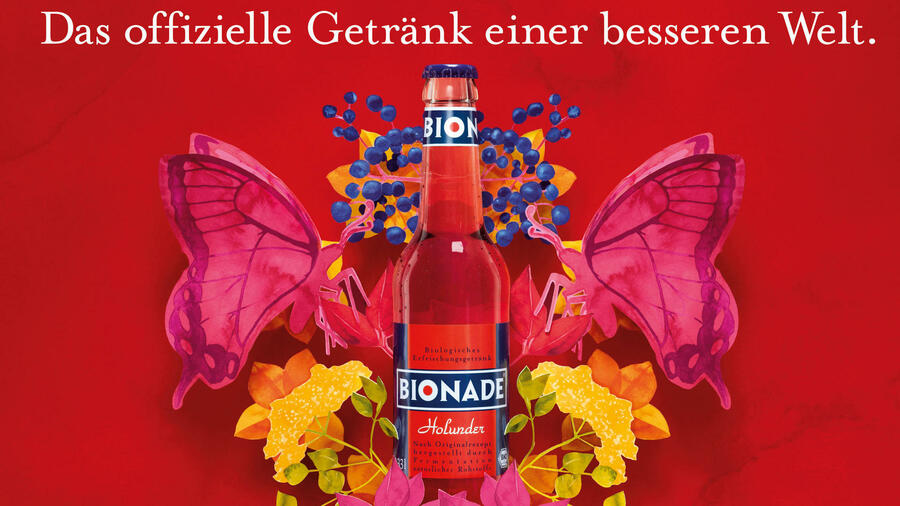
However, the Bionade struggled ever since with its financials. The family refused to sell a share of the company to Coca Cola, arguing that the values did not match. Instead, during summer 2008 the family decided to increase the price by one third to rescue the company. It did not work out. The family were forced to sell, the Kowalsky brothers left the company. The brand loyalty of the consumers significantly suffered. In the end, Dr. Oetker sold again and Bionade today again is part of a – albeit much larger – family business, the Hassia Mineralquellen.
The story somehow reminds of innocent, the British beverage company, founded some 5 years after Bionade in 1999. which pioneered not only to sell bottles smoothies, but who also were proud to create a different, socially-minded corporate culture. Their founding story is nicely marketed. Apparently, the three founders Richard Reed, Adam Balon and Jon Wright brought £500 worth of fruit to a music festival in London.They set up a stall and sold the fruit as smoothies while asking their customers to take part in a vote. They asked: “Should we give up our day jobs to make smoothies?” The answer overwhelmingly was yes ..

Like Bionade, innocent was taken over by a large corporate, in this case: by Coca Cola. The take-over allowed innocent to significantly grow its market share, and to expand into new markets, such as Germany. Unlike Bionade, innocent seem to have managed better to maintain its credibility as a cause-related company – very much like Ben & Jerry’s, the ice-cream company who was taken over by Unilever. Ben&Jerry kept an activist, rebel-like corporate culture. Both innocent and Ben&Jerry’s are certifies B Corporations, but this is unlikely to explain the full story. With its new ownership, Bionade may recall more of its original core values and reposition itself as a drink for a better world. We’ll see.
For our selection of cause-related beverages, we selected 10 startups which truly kept their independence. The order does not propose any ranking . One of the most important criteria for us: the authenticity of the founding teams and the seriousness with which they pursue their vision of a better world. For the sake of clarity. We are not paid for featuring any enterprise.
Our 10 favorite independent drinks for a better world
3x Mission-led Lemonades
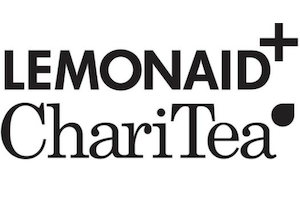
Lemonaid and ChariTea
The company Lemonaid, founded by Paul Bethke, Felix Langguth and Jakob Berndt in winter 2008, has de facto jumped into the gap left by Bionade when its cult status waned. And this very successfully. At 5 cents per sold bottle of Lemonaid or ChariTea, the amount donated is manageable, but the masses do it. This has already resulted in over 4 million euros for social projects. The product is fair and organic, has less sugar than most other lemonades and the Hamburg-based company has remained independent of large corporations despite its striking growth course. The team has changed slightly in the meantime. Jakob Berndt has now left Lemonaid and is devoting himself to the green online bank Tomorrow, which he co-founded. He is convinced that a bank can reach even more people than a lemonade.
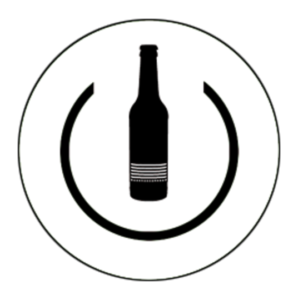
MunterMate and Frohlunder
A company without an office, which as a grassroots democratic network not only sells particularly sustainable beverages, but also cultivates a special corporate culture with a standard wage and freely selectable working hours. That is the Premium-Kollektiv (“premium collective”). In the beginning was the Premium Kola from Hamburg. In the meantime, there is, among other things, an elderberry soda (“Frohlunder”) and with MunterMate a stimulating soda, which the three Freiburg-based Roman Marten, David Bregulla and Hagen Krohn have brought into the collective. What convinces us: The high-quality Erva-Mate grows wild in the forests of Brazil. The harvest secures an income for local smallholders and thus creates an incentive to protect the forests.

Selo Green Coffee
The also caffeinated and fairly traded lemonade from Berlin was originally intended to use the fruit around the coffee bean that was not needed in coffee production. Founder Laura Zumbaum was then thwarted by the complicated EU food law with her convincing upcycling idea of the coffee cherry. This allows the import of coffee beans, but not their husk, the coffee cherry. This does not make sense. However, the regulation could not be adapted quickly. The new coffee-cherry-free Selo Green Coffee Lemonade is nevertheless convincing, not least because of the thoroughly transparent value-added chain for which Selo vouches.
1x A beer which supports your neighborhood
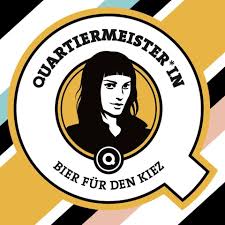
Quartiermeister
Certainly not the only social brewery, but a team and product that is convincing. With every sold bottle of beer <a href=”https://quartiermeister.org/de/” target=”_blank” rel=”noopener”>Quartiermeister</a> supports a local project. The Berlin-based start-up, co-founded by David Grisebach following a bachelor’s thesis on Social Entrepreneurship 2012, is committed to a solidarity-based economy. The affiliated association supports local projects that are selected through a transparent process and with the involvement of the community – for the benefit of all.
2x Hot Chocolate – to chill or to wake up

ChillChoc
Dave Tjiok and Burkhard von Stackelberg from Stuttgart launched this relaxing cocoa drink in 2018. By selling the cocoa powder, the two Swabian tinkerers are fulfilling a long-standing dream: they are helping small farmers along the cocoa supply chain to produce Terra Preta and to ecologically modernize the tropical landscape with this special nutrient-rich soil. After the attempt to set up a company that produces and sells Terra Preta soil proved to be unworkable, the two found a successful “workaround” in ChillChoc. Fortunately: ChillChoc is not only a means to a (good) end, but also delicious. In the meantime, the former two-man business has grown into a five-member founding team, so that Dave and Burkhard can concentrate fully on product development. By the way, the calming effect comes from the addition of cannabidiol (CBD) from natural hemp leaves. This is medically harmless and approved for use in beverages.
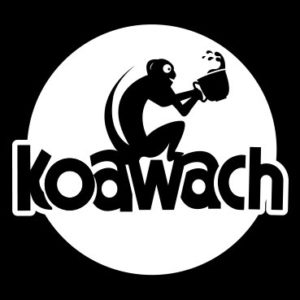
Koawach
Koawach is a cocoa-based pick-me-up drink for all those who want to reduce their coffee consumption (or never liked coffee). In other words, ChillChoc with reversed signs. Koawach achieves its invigorating effect by adding guarana and is therefore easier on the stomach than coffee. The start-up, founded by Daniel Duarte and Heiko Butz in 2014, aims to achieve a climate-neutral supply chain by 2030. The company is counting on solid company growth and also sells its beverages through larger chains. To maintain independence, the founders have launched a Crowdfunding-campaign, through which they have already raised more than €400,000.
If you are quick, you can still participate via the crowdinvestment platform Econeers until Saturday 16 May. Then the campaign ends.
2x Tea time: Opting for economies of scale vs a high-impact social niche
Similar to coffee, there is a variety of fair trade certified teas. We show two tea offers that are quite radically different from others:
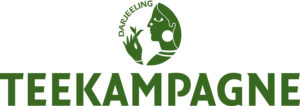
Teekampagne (“tea campaign”)
The start-up Teekampagne, founded by Prof. Faltin, Professor for Entrepreneurship at the FU Berlin, back in 1985, had no “impact” idea as its actual starting point. Rather, the aim was to show that a lean business model that deliberately focuses on a single product, which is imported in large quantities at low cost and marketed in large packaging as a family or annual ration, can create a serious competitor for the established suppliers. Teekampagne was limited to tea from one of the 87 tea gardens in Darjeeling, India. After 32 years, a second product was added in 1987: Tea from Assam. The first to benefit from the optimized business model is the customer, who gets a high-quality tea at a reasonable price. However, Teekampagne introduced sustainability aspects from the outset and gradually expanded its commitment to a fair value chain. This means that part of the margin achieved through the purchase of large quantities benefits the local people. The concept has also found new offspring again and again, thanks to the enterprising professor whose entrepreneurship conferences attract thousands of people. It is this founding spirit that led us to consider the tea campaign as a start-up even today. One of the offspins is the Start-up Ratio Drink, which sells apple juice as a concentrate online. The idea is that mixing with water can be done more efficiently and ecologically at home than at the place of production – provided that the customer is looking for a cheaper alternative to direct juice.

Conflictfood
Conflictfood is also a start-up that, with very few exceptions such as the GoodBuy Store in Berlin, also sells its products largely online. But this is where the similarities with the tea campaign end. The start-up, founded in 2015 by Salem-el-Mogaddedi and Gernot Würtenberger, deliberately goes into niches. It obtains products from cooperatives in crisis and war zones that no longer have any sales markets due to the current situation. In this way, Conflictfood generates income for people in need, creates some normality and promotes the peace process. This also applies to tea imported from Myanmar, which provides income, especially for the oppressed population group of the Rohingya. Conflictfood is a social enterprise through and through. The products are lovingly packed in workshops for disabled people in Berlin. Each package is accompanied by a newspaper that provides information about the conflict as well as about the history, joie de vivre and food culture of the respective region of origin.
2x Exotic drinks which combine health and impact
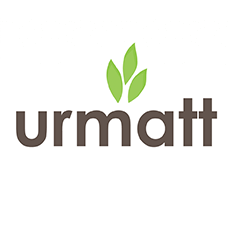
Urmatt
The company name is reminiscent of Switzerland, a mixture of the canton of Uri and Zermatt. However, it is one of the most extraordinary companies in Thailand. The organic agricultural company Urmatt, founded by Arvind Narula in the 1990s, is now the largest producer of certified organic rice in the world. And this with a corporate culture based on village value creation. The latest product is organic coconut water, marketed under the Maprao brand. The product is made from farmers’ produce and is sold locally in the urban centres of Thailand, which is also ecologically sound. It is a healthy drink option for your next holiday in Thailand.
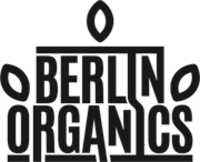
Baowow
The baobab fruit will probably never be obtained from plantations. Because the tree only bears its first fruits after 30 years. A special kind of Slow Food. The powder extracted from the fruit is enormously healthy and – enriched with water – is popular locally as a delicious refreshing drink. The BerlinOrganics start-up founded by Klaas Koolmann from Berlin brings the baobab drink to us in Europe. As Baowow powder that is mixed with water at home and thus keeps the ecological footprint small. The actual impact, however, is the valorisation of the vast areas of land in Zimbabwe covered with baobab trees. More and more communities generate income by collecting and selling the baobab powder. Organisations such as the Baobab Alliance ensure that the benefits of trade are fairly distributed.
Fun Fact about Lemonaid ?
At the beginning of 2019 Lemonaid was warned by the Hamburg Authority for Consumer Protection. From now on, Lemonaid may no longer be called lemonade in public, as this would violate the ‘guiding principle for soft drinks’ of the Federal Ministry of Agriculture and Rural Affairs. The reason? Lemonaid contains too little sugar! Six percent sugar is too little, because the official minimum sugar content for a lemonade is seven percent. Lemonaid fans reacted with petitions about this absurd rule. Lemonaid asked the office to reconsider the abstruse lemonade guidelines instead of a name ban. “Natural foods low in sugar shouldn’t be penalized but should be the norm.” Eventually, without a trial, the Office conceded. Lemonaid was allowed to keep his name and instead it was promised that the food guidelines would be reviewed with regard to possible harmful minimum levels.

The drinks presented here are almost all available in organic or supermarkets or can be purchased online. A few like Muntermate or Frohlunder are currently only available in selected pubs or cafés. The Maprao coconut water only locally in Thailand. In the selection we have been guided by our GOOD Impact criteria. The authenticity of the teams behind the drink startups plays an important role.
We left out two of the most important drinks: Tap water and coffee. We would like to dedicate our own magazine articles to them.
With our search engine, which generates money, we want to help young, innovative start-ups, which change the world positively, to get on their feet. We supported two of the companies listed above at an early stage by participating in their Startnext Crowdfunding campaigns. Take a look:

